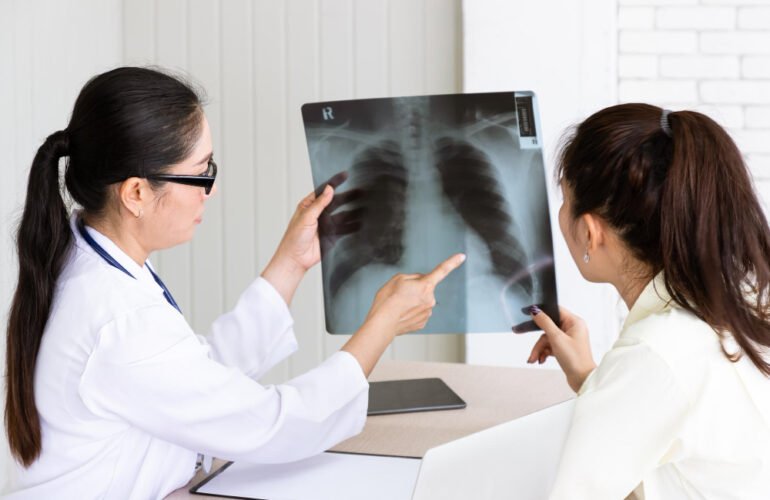A CT scan (Computed Tomography) is one of the most effective imaging techniques in modern medicine. It provides detailed cross-sectional images of the body, enabling doctors to diagnose a wide range of conditions with clarity and speed.
If your healthcare provider has advised you to get a CT scan, you might have a few questions or concerns. This step-by-step guide will help you understand the process, what to expect, and how to prepare properly for a smooth and stress-free experience.
What is a CT Scan?
A CT scan uses a combination of X-rays and computer technology to generate high-resolution images of internal structures in your body. Unlike regular X-rays, CT scans provide more detailed, 3D visuals, which are extremely helpful in evaluating soft tissues, organs, bones, and blood vessels.
CT scans are commonly used to diagnose:
- Brain injuries, strokes, or tumors
- Chest or lung diseases
- Abdominal pain or organ disorders
- Bone fractures and joint issues
- Blood clots and vascular conditions
Before the Scan: Important Preparations
1. Consult Your Doctor
Your doctor will let you know if your scan requires special preparation. Some CT scans are performed with a contrast dye (to enhance image clarity), while others are done without it.
It is important to inform your doctor if you:
- Are pregnant or suspect pregnancy
- Have any allergies, especially to contrast dye or iodine
- Have a history of asthma or kidney problems
- Are diabetic or take medications like metformin
- Are breastfeeding
2. Fasting Instructions
If your scan includes contrast dye, you may be asked to avoid eating or drinking for 4 to 6 hours prior to the test. If it’s a plain CT scan, no fasting may be required.
- Avoid fatty or heavy meals before the scan
- Drink plain water as advised
- Do not consume caffeinated beverages or alcohol
Always follow the specific instructions provided by your doctor or the imaging center.
3. Wear Comfortable, Metal-Free Clothing
You may be asked to change into a hospital gown, but wearing loose, comfortable clothes is always a good idea. Avoid wearing:
- Metal zippers, belts, or buttons
- Jewellery, watches, or hairpins
- Underwire bras or clothing with hooks
Metal can interfere with the imaging process, so it’s best to leave valuables at home.
4. Bring Essential Documents
Make sure to carry the following with you:
- Doctor’s referral or prescription
- Any previous scan or medical reports
- Identity proof and health insurance (if applicable)
- A list of current medications and allergies
Arrive at the imaging center at least 30 minutes before your appointment time.
If Your CT Scan Includes Contrast Dye
Contrast dye helps improve the visibility of blood vessels, tissues, or organs during the scan. Depending on the purpose of the scan, it may be given orally, intravenously, or rectally.
What to expect:
- A warm sensation or metallic taste when the dye is injected is normal
- You may feel flushed or slightly nauseated for a few seconds
- Inform the staff immediately if you feel itchy, short of breath, or dizzy
If you’ve had a reaction to contrast dye in the past, let the technician or doctor know beforehand.
What Happens on the Day of the Scan
Step 1: Arrival and Registration
Upon arrival, you’ll be asked to complete a few forms and provide your medical history. The technician will explain the scan process and address any concerns.
Step 2: Changing and Positioning
You may need to change into a hospital gown. You will be asked to lie down on the CT scan table. The technician will help position you correctly, and in some cases, straps or cushions may be used to ensure you remain still.
Step 3: During the Scan
The CT scanner is a large circular machine with a sliding table. As the scan begins:
- You may hear buzzing or clicking sounds
- You will need to stay very still
- You might be asked to hold your breath briefly to avoid movement blur
The scan usually takes between 5 to 30 minutes, depending on the area being examined.
Step 4: After the Scan
If you had contrast dye, you may be observed for 15–30 minutes to check for any delayed reactions. Drink plenty of water after the scan to help flush the dye from your body. Most patients can resume normal activities immediately unless advised otherwise.
When to Call Your Doctor
While most CT scans are completed without any issues, you should seek medical help if you experience:
- Persistent itching, swelling, or rash
- Difficulty breathing or chest tightness
- Pain or redness at the injection site
- Nausea, vomiting, or dizziness
These may be signs of an allergic reaction or complication and require prompt attention.
Frequently Asked Questions
Can I eat before a CT scan?
Yes, unless advised to fast. For contrast scans, fasting is typically required for 4–6 hours.
Is the scan painful?
No. CT scans are completely painless. The only discomfort may be from lying still or from the IV contrast injection.
Can I take my regular medications?
Most medications can be taken as usual. However, consult your doctor if you’re on metformin or blood thinners.
How long does it take?
Most CT scans are completed within 15 to 30 minutes, though you may spend additional time at the center for preparation or observation.
Is it safe to have multiple CT scans?
CT scans involve a low dose of radiation. While generally safe, repeated exposure should be monitored by your doctor, especially in younger patients.
Final Preparation Checklist
- Informed your doctor of any allergies, medical conditions, or medications?
- Fasting instructions followed, if applicable?
- Wearing metal-free clothing or ready to change into a gown?
- Brought referral, ID, insurance, and medical records?
- Hydrated before and after the procedure?




